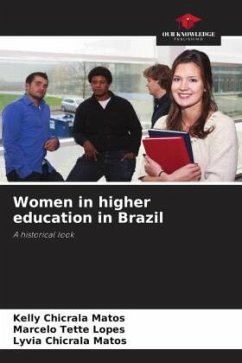The inclusion of women in the Brazilian educational context encompasses various issues and complex themes of gender inequality, in which the male sex has always been the discourse of social and economic superiority. Increasingly, the lack of opportunities to access education leads to inequality between the sexes. Religious education, which divided the population according to gender, formed a macho and dominant society that has historically imposed limits on women's social development. The aim of this article is to shed light on the history of Brazilian education and the inclusion of women in the educational context, who were only officially authorised by the Brazilian state to enrol in higher education from the end of the 19th century onwards.
Bitte wählen Sie Ihr Anliegen aus.
Rechnungen
Retourenschein anfordern
Bestellstatus
Storno








